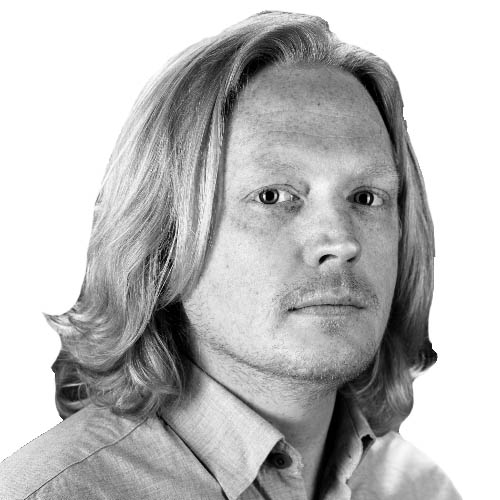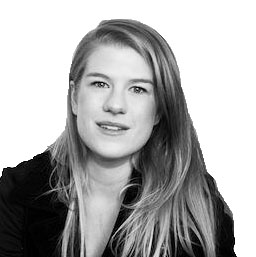DALLAS — Micah Johnson sought to join a black militant group two years before he targeted white police officers for death but was turned away after a background check.
After being sent home from Afghanistan for stealing women’s underwear, Johnson was discharged from the Army in late summer 2014 just as the deaths of Michael Brown and Eric Garner were energizing the nascent Black Lives Matter movement. With his Army identity shattered, as his mother told The Blaze, Johnson then sought a new one in the black power movement by joining one of several groups that believe in armed resistance against white society, especially police.
Before he could join, though, a tipster asked a man in the Dallas-area movement to screen Johnson for involvement in black activist groups.
Ken Moore of the Collective Black People’s Movement (CBPM) said that he was asked to look into Johnson by an unidentified black activist group. When he discovered the Army veteran was discharged for sexual harassment, he labelled him “unfit for recruitment.”
Malik Shabazz, former chair of the New Black Panther Party, told The Daily Beast that the background check system described by Moore effectively blacklisted Johnson from membership in black nationalist and black liberation groups across the country.
“Once you’re blacklisted by the alert that we put out, that’s a wrap,” Moore told The Daily Beast.
Though shunned from groups like the People’s New Black Panther Party and the Black Riders Liberation Party, Johnson continued attending protests and events in the area, according to multiple people within the Dallas activist community.
Online, Johnson was loosely affiliated with the African American Defense League, the Black Riders Liberation Party, the Huey P. Newton Gun Club, and South Dallas’ Muhammad Mosque Number 48, which is run by acolytes of Louis Farrakhan’s Nation of Islam. Both the Houston and Dallas chapters of the People’s New Black Panther Party said unequivocally that Johnson was never a member of either group.
“He was basically seen as a loner, a sympathizer,” Moore said.
Moore was speaking at a Black Lives Matter rally in Forth Worth on Thursday when he heard from the CBPM network of a “non-sanctioned shooting” of police.
“He was already ostracized [by the blacklisting],” Moore said, speculating that Johnson had a “psychological break” after Alton Sterling and Philando Castile were killed by white police.
One of the groups Johnson followed on Facebook issued a call to arms over Sterling and Castile’s deaths just hours before he attacked.
“It’s on in 2016!” Black Riders leader Lakesia Washington posted to Facebook on Thursday afternoon. “R.I.P. to Alton Sterling in LA and Philando Castile in Minnesota!”
Washington continued with language that could’ve come from Johnson’s lips, according to Dallas police who say he told them he was avenging black men’s death at the hands of cops and that he wanted to kill white officers.
“We assert the right of self-defense by whatever means necessary, and reserve the right of maximum retaliation against our racist oppressors, no matter what the odds against us are,” she wrote. “From here on in, if we must die anyway, we will die fighting back and we will not die alone! We intend to see that our racist oppressors also get a taste of death!”
The very same Black Riders post answers the cryptic message Johnson wrote in his own blood just before he was killed by a police robot.
“RB” was scrawled on a wall inside the building where Johnson was holed up, according to Dallas police chief David Brown. It is likely that Johnson was writing “RBG,” a favorite acronym of the Black Riders that stands for “red, black, and green”—the colors of the Pan-African flag.
Brown was asked about The Daily Beast’s reporting during a Monday press conference and would not say whether police believe Johnson was attempting to write RBG before he died.
“Until you told me we've exhausted every lead, I'm not going to be convinced that we know everything about what happened,” the chief told reporters.
If RBG was the slogan he was trying to write, one of Johnson’s final acts was to pay homage to the movement he wished so badly to join. Ignored in life, Johnson has been embraced in death.
One of Johnson’s final acts was to pay homage to the movement he wished so badly to join. Ignored in life, Johnson has been embraced in death.
“R.I.P. Micah...X...Johnson !!!... RBG 4 LIFE!” Washington wrote on Saturday. “RIP, you represented the few brave African soldiers” wrote another Black Rider follower. “Nat Turner of Our Time. Remember Him with All Revolutionary Ancestors,” posted another. Other members changed their profile photos to Johnson’s photo at his time of death: a dashiki, a raised fist, and a cold stare.
Moore claimed on Sunday not to know which organization had asked him to look into Johnson, saying only that the message came from Oakland, California, where the Black Riders has a chapter. Several members of the group did not respond to requests for comment, and Shabazz would not confirm or deny that Johnson had been trying to join the BRLP.
When asked if Johnson was a member of the Huey P. Newton Gun Club, which advocates blacks take full advantage of their right to bear arms, leader Makio Shakur said he could neither confirm or deny Johnson’s role. Shakur did condemn the killing of police officers, however.
“That’s not what we’re about,” he said. “We support the Second Amendment rights of all people, and will be there to defend them whether they are white, black, Hispanic, Asian, whatever.”
But gun club co-founder Babu Omowale told Breitbart News “he wasn’t a stranger to us” adding that Johnson was well-known by members of the gun club and the People’s New Black Panthers Party.
As for Johnson’s relationship with the Nation of Islam mosque, another gag order is in effect. When asked on Saturday if Johnson attended services there, two men monitoring the parking lot repeated that they had no comment and asked The Daily Beast to leave.
Much like the secrecy around Johnson after he died, his public life became ever more attenuated as he barreled towards mass murder.
High school classmates remembered him not as a loner but as a “fun-loving, goofy guy,” as one told The Wall Street Journal. The military had been a big part of his future, too: Johnson was a cadet in the Junior ROTC and enlisted in the Army Reserve in March 2009 before he graduated high school, according to Defense Department records.
Despite his Army life unraveling, Johnson kept hanging out with high school friends in his hometown of Mesquite, according to former classmate Julius Young.
Young told The Daily Beast he and Johnson and several other friends would casually drink together in summer 2014 but then something changed. Young couldn’t remember exactly when he last saw Johnson, but he was certain it was before Ferguson. He chalked Johnson’s disappearance up to life simply pulling people apart. Kids, a new job, moving away, Young said. But Johnson had none of those reasons, and was working as an in-home caregiver for his disabled younger brother, receiving paychecks from the state in the same town as Young. At the same time, he was seeking acceptance in the movement that shunned him.
Young said he now realizes his friend was quietly becoming radicalized.
“Everyone got secrets,” he said.
Editor's Note: This story has been updated with Brown's response to this reporting.





